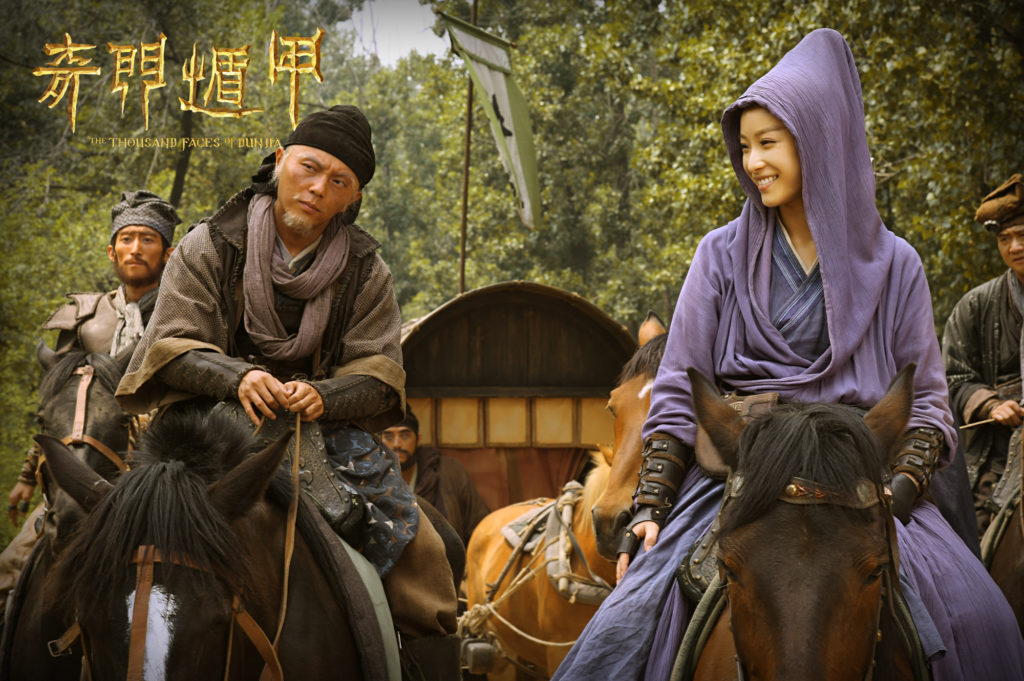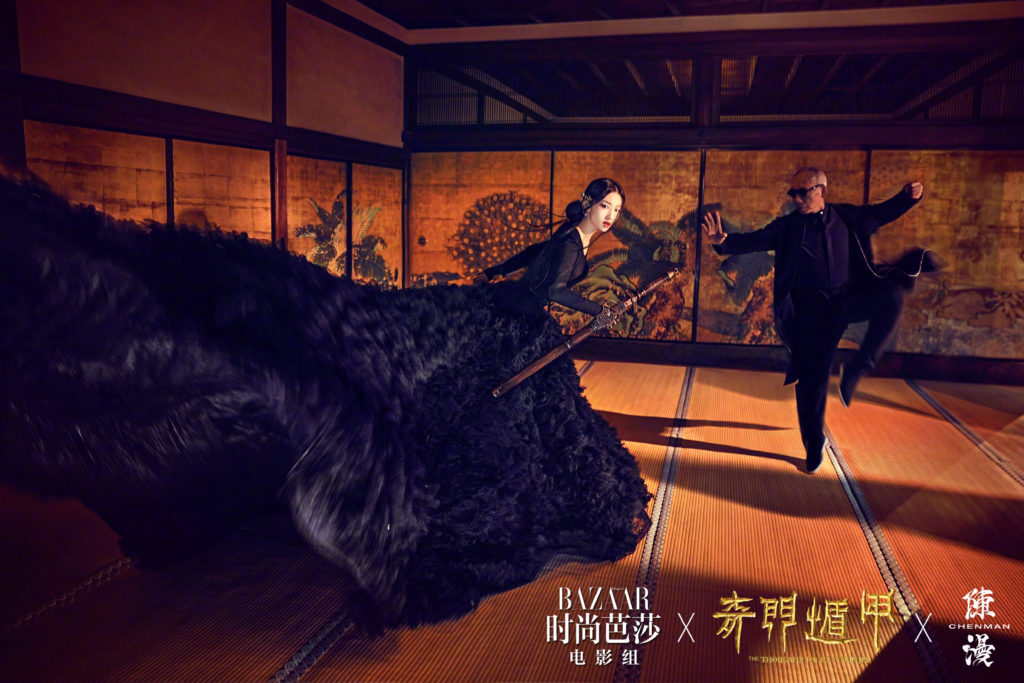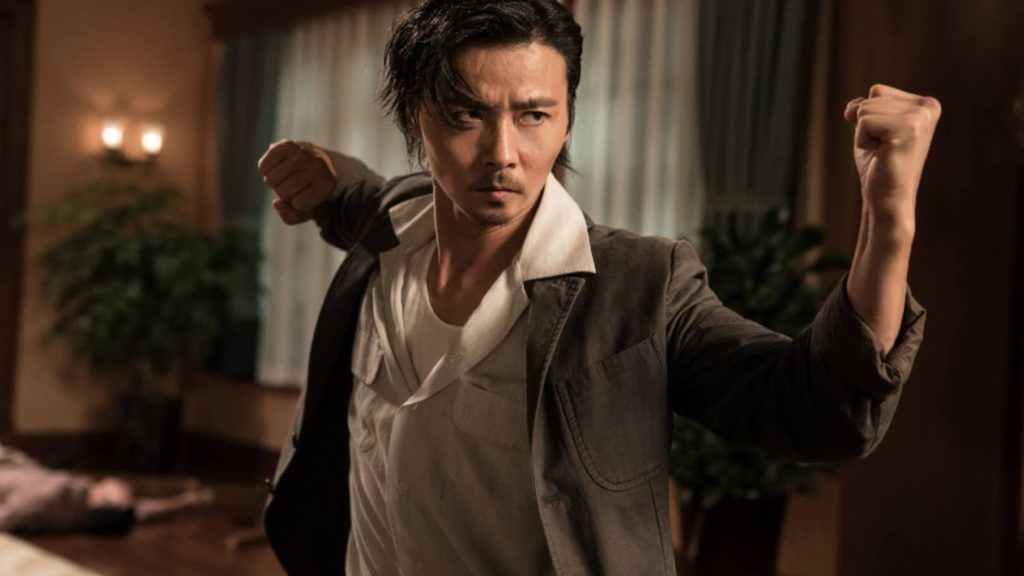Subtext | Yuen Woo-Ping’s Two Recent Movies
As we discussed in the first half of this two-parter, Yuen Woo-Ping is a director with an extremely long career in Hong Kong cinema. He’s been the lead director on 31 films and the action director on about twice that many. He’s worked on Hollywood blockbusters and low budget productions, and got his start in cinema all the way back in 1962. He was 17 at the time, and had a role as an extra on Griffin Yueh Feng’s 1962 film Lady White Snake (an operatic version of the old Chinese legend). It’s not that surprising that he started early – his father Yuen Siu-tien (also known as Simon Yuen) was an actor and director, and six of his sons went into the industry. In 1971 Yuen Woo-Ping was the martial arts director for Bi hu (released in English as The Lizard), a by-the-numbers Shaw Brothers film that is most notable just for being Yuen’s first taste of the job that would make him famous. In 1978 he was the assistant director for Dynamo, one of the many “inspired by Bruce Lee” films of the era. Later that year he had his first chance to be in charge, with Snake In The Eagle’s Shadow.
Snake In The Eagle’s Shadow was not just Yuen’s first film, but it’s also considered a breakout role for leading man Jackie Chan. Prior to this, Chan had been one of many leading men who were being forced into the mould of the “next Bruce Lee”. This was his first chance to try out his action comedy skills. The plot (Chan is a failure at a martial arts school who is mentored by an old eccentric, played by Yuen’s father Yuen Siu-tien) seems cliché today, but that’s because this film was so influential and has been copied many times. One of those copies came from Yuen Woo-Ping himself, as his next film Drunken Master has almost the same story. This time he and Chan leaned even further into the comedy, creating a film that was a smash hit. It was second in box office earnings for Hong Kong in 1978. The following year it made the top ten in Japan, and was the most popular film of the year in South Korea. It went on to be popular in Europe and America as well, since Chan’s physical comedy style was able to overcome the terrible localisations of the time. One sign of its success is how many imitators it spawned, including several completely unrelated films that had “Drunken” inserted into their title for western release. Yuen himself directed several spinoffs centred around his father’s character from the film, Chan’s mentor “Beggar So”.
Yuen directed twenty-four more films over the next eighteen years, including classics like Iron Monkey and Tai Chi Master. A sequel to Tai Chi Master in 1996 was Yuen’s last film directing role for a while, though he did direct a TV series based on the two movies in 2003. This wasn’t a career lull, but rather a new direction – as we detailed last time (link!) this was where Yuen’s action choreography career really took off. It wasn’t until 2010 that he returned to the director’s chair, for a film called True Legend that was actually a prequel to his hit Drunken Master. It was a less than successful return – the film was overproduced and burdened with the 3D gimmickry of the time, leading to it being an absolute box office bomb. Yuen returned to action directing, until 2016 and Crouching Tiger, Hidden Dragon: The Sword of Destiny. The following year he teamed up with Hong Kong legend Tsui Hark to create a film that played into both their strengths: The Thousand Faces of Dunjia.

The Thousand Faces of Dunjia (2017, Netflix)
The Chinese title for this film is Qimen Dunjia, which is the name of an ancient form of divination involving astronomy. The literal translation is usually given as “mysterious gates escape technique”, but this is probably not the original meaning as the phrase is ancient (being first mentioned almost two thousand years ago). The meaning of mystery attached to “Qimen” might have actually come from the word itself, for example, since it has been a mysterious art for so long. (The film’s introduction says that “Qimen” means “time and coordinates”, which is a reasonable theory.) “Dunjia” might also mean “calculating technique”, which would make more sense. (Though the notion of “Dunjia” as a magical movement technique is used in classic Chinese novels like Romance of the Three Kingdoms.)
This was not the only film Yuen Woo-Ping had made called Qimen Dunjia, with the first released in the west in 1982 under the title The Miracle Fighters. This has led some people to call this a “remake” of that film, but that’s not really the case. The plot of the two have no similarities at all. The Miracle Fighters (one of Yuen’s favourite films that he made) is about a young man being hunted by Sorcerer Bat (played by Yuen’s brother Shun-yee) who is trained in Taoist martial arts by two monks (one played by Yuen’s brother Cheung-yan). The Thousand Faces of Dunjia, on the other hand, opens with exposition that the Qimen Dunjia mentioned in ancient texts is actually a powerful magical weapon and a secret society called the Wuyin Clan is trying to protect it from “the enemies from beyond the sky”. In other words, this is a (surprisingly rare) science fiction twist on the wuxia fantasy genre.

Aarif Lee (sometimes credited as Aarif Rahman) plays Dao Yichang, the newbie constable on a corrupt city police force who winds up entangled in the Wuyin Clan’s affairs. His story entwines with that of Dragonfly (Ni Ni), the leading warrior of the Wuyin Clan, and Zhuge Qingyun (Da Peng), a member in search of the clan’s new leader (who ends up played by Zhou Dongyu). Zhuge shares his name with a famous wuxia author, and Dao is very much a classic wuxia protagonist caught in a stranger than usual tale. The movie deliberately structures itself in novel style, with chapter headings onscreen for each scene. (I wonder if Yuen Woo-Ping meant this as a nod to the work of his Hollywood collaborator Quentin Tarantino?) One bit of casting that may sail over western heads is Wu Bai playing “Big Brother”, the acting leader of the Wuyin Clan. Wu Bai is a Taiwanese rock star who is one of the biggest stars in the whole of southeast Asia, as big as Jagger or Bowie (two other great rockstars who moonlighted as actors) in their heyday.
Both Yuen Woo-Ping and Tsui Hark are notorious for inventing new genres, and this blend of science fiction with wuxia feels like them trying to do the same again. However The Thousand Faces of Dunjia is nowhere near the hit that Drunken Master, A Chinese Ghost Story, or A Better Tomorrow were. While it’s hard to find out what the budgets are for Chinese movies, a worldwide box office of $46 million is probably not exactly a failure but also far from what the producers might have been hoping for. It’s not that surprising the film failed to land with audiences. The plot is overcomplicated, and the CGI effects are not the best (and sadly the conclusion relies heavily upon them). The old-fashioned almost operatic action in places is a nice touch, but feels a little out of place. Despite the film ending with an extremely blatant sequel hook, it’s unlikely one will ever materialise. Still, it’s a fun ride of a film even if it’s not a classic.

Master Z: The Ip Man Legacy (2017, Amazon Prime)
Yuen Woo-ping’s most recently directed film is a spin-off from a series he’s done a lot of action choreography for – Ip Man. The Ip Man series is based on the life of a real martial arts legend from the early 20th century. Best known for having taught Wing Chun to Bruce Lee, he was born Ip Kai-man in 1893. Ip was a police officer and member of the Kuomintang (the Chinese Nationalist Party) as well as a Wing Chun grand master, so in 1949 when the Communist party won the civil war he fled to Hong Kong. That was where he set up his school, and in the next two decades (before his death in 1972) he taught a half-dozen future grand masters as well as Bruce Lee. The tournament victories of his students and the use of Wing Chun in films made the style, and the teacher, famous.
Before 2008 Ip’s portrayal on the screen was usually as a supporting character to Bruce Lee, but a film by Donnie Yen changed all that. Ip Man is set during the Japanese occupation of his home town Foshan in World War 2 and portrays Ip getting drawn into resisting the occupiers due to their cruelty and his skill. (In reality, Ip had evacuated the city before the occupation. The film also conveniently omits his affiliation with the Kuomintang and implies he fled to Hong Kong to escape the Japanese.) The three sequels released over the next eleven years covered Ip establishing his school in Hong Kong, again taking many liberties with the details of his life. Historical inaccuracies (and an occasional slide into propaganda) aside, it’s a classic modern martial arts series.
Master Z: Ip Man Legacy was released between Ip Man 3 and Ip Man 4, and follows on from the ending of 3. In that, Ip Man had defeated the leader of a rival school named Cheung Tin-chi. Master Z follows Cheung (played by Max Zhang) who has retired from the martial arts life to raise his son. However he gets inadvertently involved in the affairs of a drug syndicate headed by Owen Patterson (played by Dave Bautista) and the Cheung Lok organised crime family (led by Tso Ngan Kwan, who is played by Michelle Yeoh). What follows is a paper-thin plot tenuously connecting some amazing fight scenes, with Yuen wisely playing to his strengths and giving people what they want. (Not well enough though – the film only made half its budget back at the box office.) It has to be noted that, like the Ip Man series, there’s a definite whiff of propaganda to Master Z. Like those, it portrays Hong Kong before it returned to being part of China as a lawless wasteland with corrupt British police officers and foreign drug syndicates running roughshod over the locals. (In fact in 2016 Hong Kong protesters called for a boycott of Ip Man 4 due to the politics of Donnie Yen and producer Raymond Wong.)
Despite the poor box office, plans for a Master Z sequel were still on the table in 2019 before the arrival of coronavirus. Whether they still are is uncertain. Also uncertain is whether Yuen would return to direct it. His last work was in 2020, when he was one of seven directors chosen to direct part of Johnnie To’s Septet: The Story of Hong Kong. (As well as To himself, the others were Sammo Hung, Tsui Hark, Ann Hui, Patrick Tam, and Ringo Lam: all legends of the Hong Kong cinema scene.) Sadly Septet isn’t yet available on streaming, since it only received a wide cinematic release this year. Yuen’s segment covers a young woman staying with her grandfather in 1990s Hong Kong before she moves to Canada with her parents, a surprisingly heart-warming and emotional story for a man so associated with directing action. If Yuen does choose to retire and direct no more films (he is, after all, 77 years of age) then it’s not a bad note to end a career on.
Images via IMDB.

